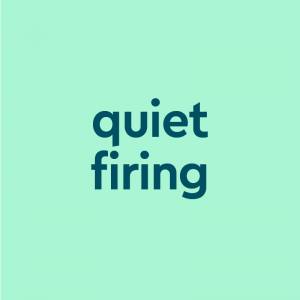Slang dictionary
quiet firing
[ kwahy-it fahyuhr-ing ]
What is quiet firing?
Quiet firing is an informal term for the practice in which employers make workplace conditions worse for employees with the intent of driving some of them to quit. The term implies that this is done secretly or at least subtly enough to make it appear unintentional.
The practice is thought to be done to avoid the financial and legal costs that an employer can incur when firing an employee.
The term quiet firing can be used to refer to any action taken by an employer with the goal of making an employee decide to quit on their own without having to be fired. Specific actions vary, but tactics thought to be used as part of quiet firing attempts include reducing pay, assigning impossible tasks, altering work schedules in undesirable ways, or a combination or such actions.
Due to the nature of the practice, the term quiet firing is unlikely to be used by employers themselves. Rather, it is typically used by workers and outside observers, such as economists and journalists.
Where does quiet firing come from?

The term quiet firing seems to have been inspired by and modeled on the earlier term quiet quitting, which refers to the practice of a worker “quietly” or subtly doing only the bare minimum in their job (without actually quitting). Just as quiet quitting doesn’t involve actually quitting, quiet firing doesn’t involve actually firing someone. In both terms, the word quiet is a reference to the secretiveness or subtlety of the actions.
Of course, the practice that quiet firing refers to long predates the term itself, which emerged in 2022 after the rise of the term quiet quitting not long before.
The term quiet hiring emerged around the same time. Some criticize the terms quiet firing, quiet hiring, and quiet quitting as unnecessary buzzwords that refer to tactics used long before the emergence of terms for them.
Examples of quiet firing
Who uses quiet firing?
The informal term quiet firing is typically used by workers and outside observers of the workplace, such as journalists and economists, especially in the context of worker dissatisfaction. Some people criticize the term as unnecessary due to referring to a longstanding practice.
Quiet Quitting is all the hype, but why is no one talking about Quiet Firing when companies do everything they can to make people's life miserable until they quit? #leadership
— Ciara Ungar (she/her) (@ciaraungar) September 9, 2022
quiet quitting is currently an issue for employers but they're okay with quiet firing wherein inhumane workloads, minimal to zero pay hike and power tripping are present over the years.
— Kiel (@sleepyheadkieel) August 24, 2022
Wait… we went from “Quiet quitting” to “Quiet firing”?
“Quiet firing” isn’t new. It’s decades old. A practice that employers have used not to have to pay severance. Making work horrible for the employee so they quit. It just has a name now.
— Jessica (@CreativeCdn) September 1, 2022
Note
This is not meant to be a formal definition of quiet firing like most terms we define on Dictionary.com, but is rather an informal word summary that hopefully touches upon the key aspects of the meaning and usage of quiet firing that will help our users expand their word mastery.